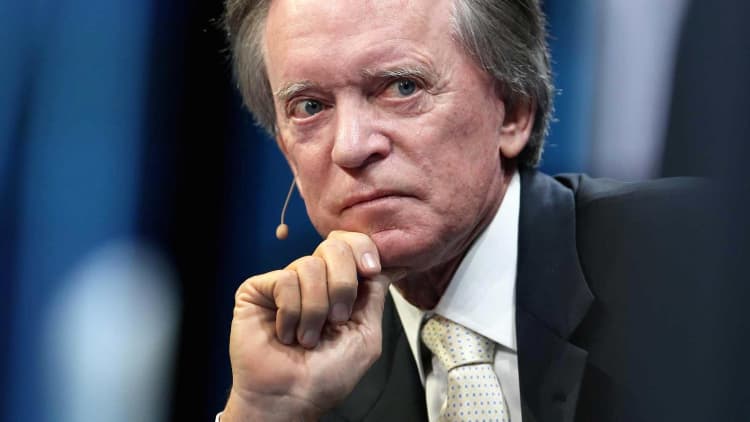
Bonds have entered a bear market, but it's not one that is necessarily extreme, bond guru Bill Gross told CNBC on Wednesday.
He predicts the benchmark 10-year Treasury will go "very gradually but not significantly higher," in the next 12 months, hitting a yield of 3 percent.
Rising yields mean lower prices, which in turn cut into returns for bond investors looking for capital appreciation.
While bondholders will get the income from the yield, they'll lose about 3 points in terms of price "so they'll get nothing," the manager of the Janus Henderson Global Unconstrained Bond fund said in an interview with "Power Lunch."
"To me, that's a mild bear market."
However, he noted that the bear market will certainly not be the extreme inverse of the 30-year bull market, where interest rates declined from 15 percent to below 2 percent.
"To suggest that we're going back up there, I certainly wouldn't do that," he pointed out.
Government bond yields have been moving up in anticipation of inflation pressures and a more active Federal Reserve. On Monday, the yield on the 10-year Treasury jumped to 2.727 percent, its highest since April 2014.
As expected, the central bank decided not to raise its benchmark interest rate on Wednesday, keeping it at 1.25 percent to 1.5 percent. However, the Fed indicated it expects inflation pressures to increase as the year goes on.
Another factor fueling Gross' "mildly bearish" view is the significant increase in Treasury issuance over the next 12 months. At the same time, the Fed is reducing is balance sheet, which is comprised mostly of Treasurys and mortgage-backed securities.
"The question becomes who's going to buy these bonds," Gross said. "The public must be induced to buy them if interest rates go higher."
— CNBC's Jeff Cox contributed to this report.


